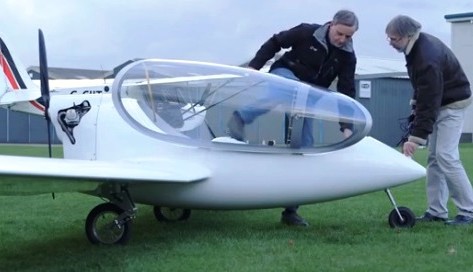Hybrid Airplane Engine
on

A team of researchers from Cambridge University UK in association with the Boeing Company have successfully demonstrated an airplane powered by a gasoline/electric hybrid engine. The team used a 120 kg single-seater ultralight type airframe called the Song and replaced its conventional powerplant with a hybrid unit of their own design. The engine uses a Honda 4-stroke engine producing around 7 kW coupled to a 10 kW electric motor. Power to the electric engine is stored in 16 large Lithium polymer cells fitted into the wing cavities.
The relatively poor energy density and weight of conventional storage batteries has limited their usefulness as a power source for electric flight. The development of lithium polymer batteries however has gone some way to redress the balance. The new hybrid power plant couples the output of a gas engine together with an electric engine onto a common output shaft and single propeller. In operation both engines provide power for take-off to ensure good rate of climb and in level flight the gas engine runs at its most efficient setting to power the airplane and recharge the batteries at the same time. Tests showed that overall; the hybrid aircraft used 30% less fuel than a plane of the same size/weight with a gasoline-only power plant, including in-flight battery recharging.
The hybrid aircraft has been tested at the Sywell Aerodrome, near Northampton, UK. Initial tests comprised a series of touch and go take-off/landings along the runway length. Longer flights at altitudes up to 1,500 ft and ongoing tests will help optimize performance and fuel economy.


Discussion (0 comments)